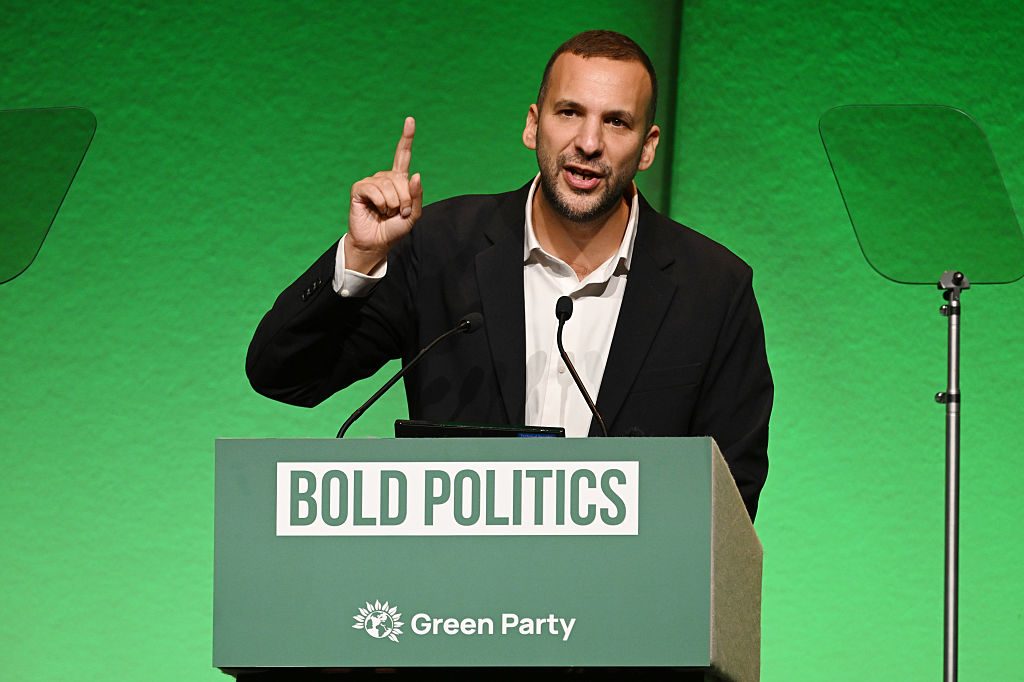At the beginning of this month, news came through that membership of the Green Party had overtaken that of the Liberal Democrats. Since then, the boost to Green fortunes has become a phenomenon. Membership continues to grow, surpassing 130,000 on Sunday evening.
That means the party has now overtaken the Tories, too. It also means that since Zack Polanski became leader last month, membership has more than doubled. On Sunday, he was able to boast that 5,000 people had joined up in a single day. For his political opponents, the joke about his remarkable ability to make things grow isn’t so funny anymore.
There’s something even bigger going on here. Over the last decade, millions of words have been devoted to the great voter revolt against the political establishment — and in particular the rise of Right-wing populism. It’s now time to start paying attention to counter-populism, the backlash to the backlash. Across Europe, political parties and movements — some old, some new — have been able to attract support primarily by providing a vehicle for opposition to the rise of the Right.
Crucially, counter-populism can be just as disruptive to the mainstream parties as populism itself. In France, for instance, counter-populism took the form of Emmanuel Macron’s En Marche movement, whose sudden emergence in 2016 not only impeded Marine Le Pen’s path to power, but also crushed the established parties of the centre-left and centre-right.
In Germany, counter-populism has manifested itself as a sudden revival of the ex-Communist Left party, which was previously on the brink of extinction, but is now draining support from the German Greens and Social Democrats. In Denmark, the disruption has been internal, with the main centre-left party reacting to the populist Right by pursuing its own highly restrictive policies on immigration — even at the cost of alienating its traditional coalition partners.
Meanwhile in the Czech Republic, anything resembling the conventional Left has been eliminated from the country’s parliament and replaced by the, erm, Pirate Party. In Italy, however, the established party of the centre-left has prevailed against wilder alternatives to maintain its status as the main opposition to Giorgia Meloni.
These examples show that counter-populism isn’t just disruptive but also highly unpredictable, taking a variety of forms. The UK is no exception. The current upheaval of the country’s party system isn’t just about the rise of Reform UK, but also a multi-sided battle to be seen as the anti-Reform party.
Zarah Sultana, of the yet to be launched Your Party, was among the first to see it coming. Earlier this year, she claimed that the next election would be a “stark” choice between “socialism and barbarism”. The Liberal Democrats and Labour conferences both featured aggressive anti-Reform rhetoric. However, it took Polanski to use the F-word, openly describing Nigel Farage as a “fascist”.
So far, the battle to be seen as the anti-Farage is unresolved. Several parties can claim some success. For instance, ahead of the Caerphilly by-election this week, polling shows that Plaid Cymru has replaced Labour as the main opposition to Reform. Indeed, Plaid is on track for its best ever results across Wales. In southern and western England, the Lib Dems — unlike Labour and the Tories — have held back the Reform advance in local government: a yellow wall up against the turquoise tsunami.
But in terms of membership figures and poll ratings, the biggest winner in the race for the counter-populist crown is the Green Party. That leaves Labour as the biggest loser, a fact that Farage won’t mind at all.











Join the discussion
Join like minded readers that support our journalism by becoming a paid subscriber
To join the discussion in the comments, become a paid subscriber.
Join like minded readers that support our journalism, read unlimited articles and enjoy other subscriber-only benefits.
Subscribe